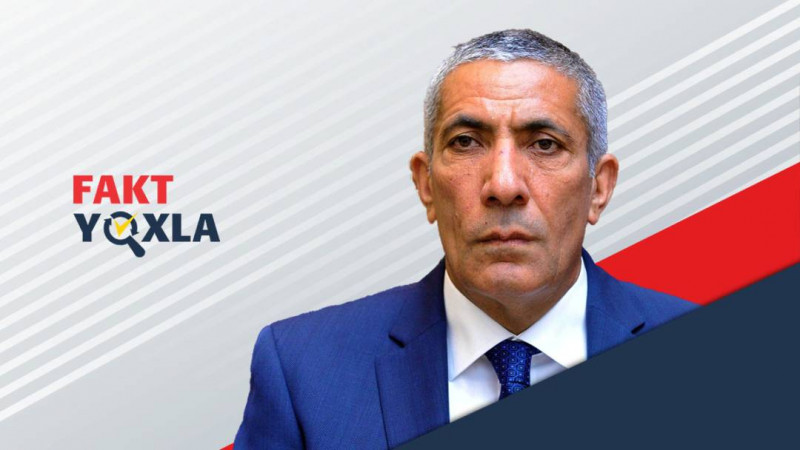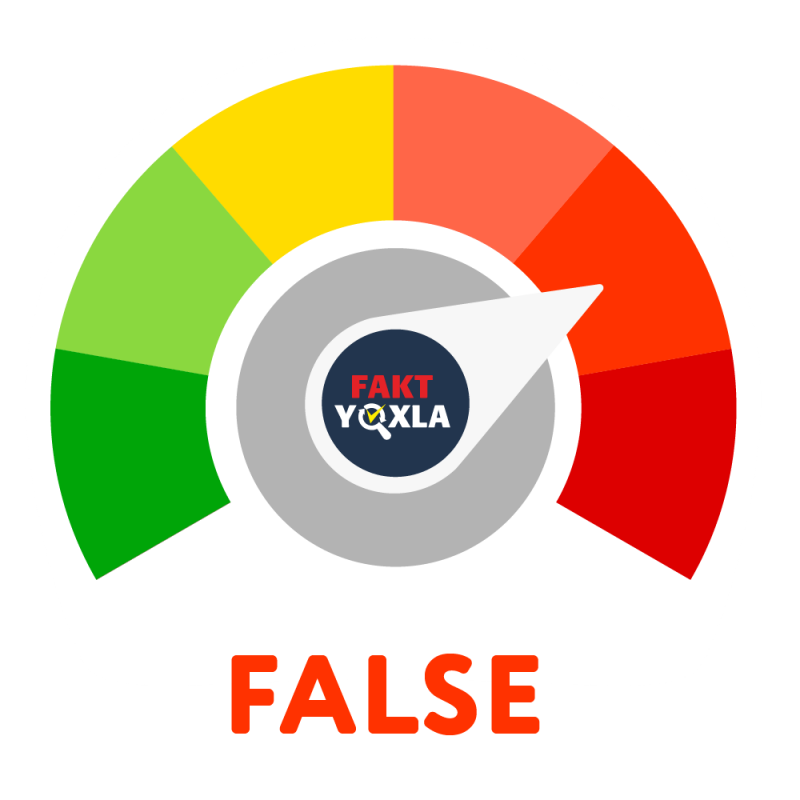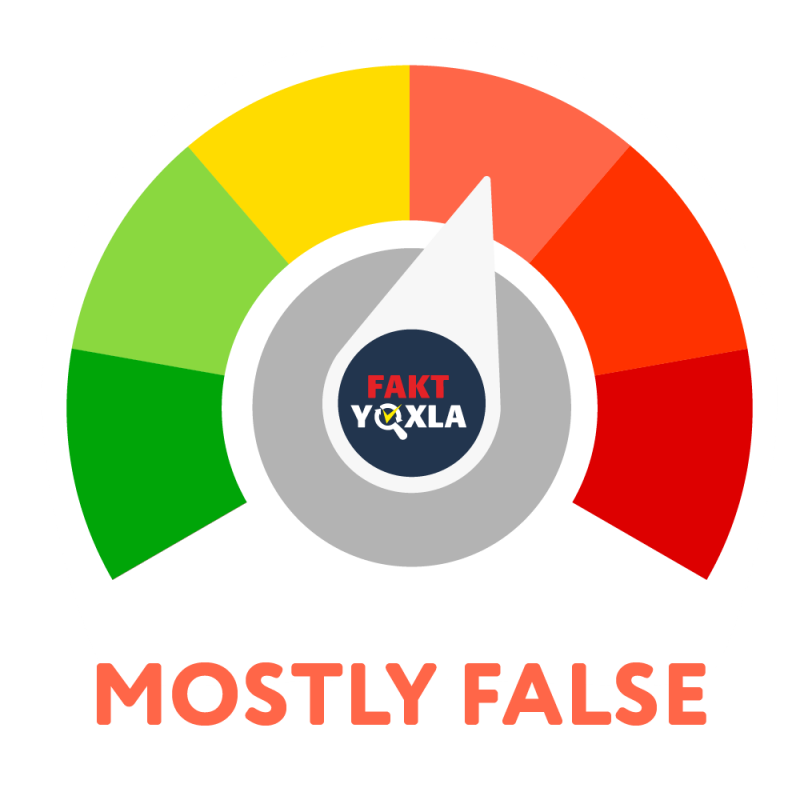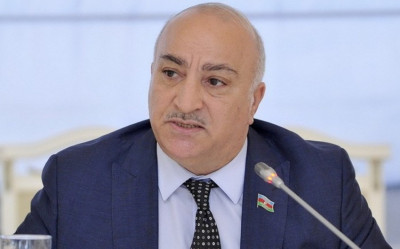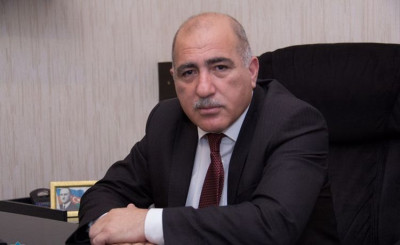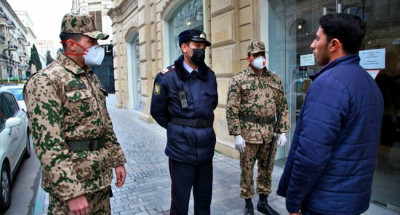On February 24, the Milli Majlis adopted a draft law on the approval of Protocol No. 16 of the Convention on the Protection of Human Rights and Fundamental Freedoms.
Although MP Samad Seyidov said that the document will raise Azerbaijan's cooperation with the European Court to a new level, the speech of his colleague Siyavush Novruzov was aimed at criticism.
"Since Azerbaijan gained independence, not a single decision has been made in favor of the state in its appeals to the European Courts," Novruzov emphasized.
Fakt Yoxla examined whether this claim was true.
As of 2022, the European Court has adopted 274 decisions regarding Azerbaijan. Statistics show that most violations were related to freedom and security, fair trial, and property rights.
However, in the practice of the European Court, it is possible to find decisions that were made against the government of Azerbaijan but were rejected later.
Archaeologists excavating in the Azykh Cave
In 2021, the European Court announced that it did not accept the claims of archaeologists from Great Britain and Spain - Tania Christine King, Peter John Andrews, and Yolanda Fernandez-Jalvo - against Azerbaijan. All three archaeologists conducted excavations and research works in Azykh Cave located in Khojavend district in 1999-2017.
In February 2017, the Azerbaijani authorities adopted decisions on the detention and arrest of Tania Christine King and Yolanda Fernandez-Jalvo, after which the National Central Bureau of Interpol placed them on an international wanted list. Interpol stopped the arrest on the grounds that they were not involved in political, military, religious, and racial activities. However, the Ministry of Foreign Affairs included the names of the archaeologists in the list of "undesirable persons".
The applicants who applied to the European Court stated that their right to respect their private lives was violated by the decisions made by Azerbaijan, that a travel ban was imposed on them, and that they had no effective defense rights.
The European Court noted that the applicants did not attempt to inform the local authorities of the violations committed in connection with the investigation of the criminal case opened against them, and did not submit a document to prove that they could not find an advocate to appear in the local courts. Therefore, their claim against Azerbaijan was not accepted.
Complaint about the April battles
The European Court rejected another claim against Azerbaijan in its March 2019 decision. Svetlana Khudunts, who lives in the so-called “Nagorno-Karabakh Republic”, said that in April 2016, as a result of the attack of the Azerbaijani military forces, her life was in real and imminent danger, and her survival was possible by chance. In her application, Khudunts claimed that her right to respect her family life and housing was violated as a result of the military conflict. The applicant also noted that her house was damaged during the ceasefire violation, and she was unable to access her property.
The decision states that although Khudunts sent the documents confirming the ownership of the farmland in Mardakert (Aghdara) to the European Court, she did not provide evidence of damage to the house. The court emphasized that although Svetlana went from Mardakert to Stepanakert (Khankendi) in April 2016, she returned later and continued to live in her house.
The European Court stated that although the fact that the applicant had to take refuge in another city for a while due to hostility caused her some stress, the Court concluded that this anxiety did not interfere with the applicant's right to family and property.
The case of Ali Insanov
On November 19, 2009, the European Court did not satisfy the claim of former Minister of Health, Ali Insanov, against Azerbaijan. Insanov, who was the Minister of Health in 1993-2005, was suspected of attempting a coup d'état and was detained on charges of abuse of power and embezzlement of state funds.
After the decision of the Nasimi District Court dated October 22, 2005, the pre-trial detention of the former minister was extended until April 2007. The applicant complained about conditions of detention, the fact that adequate medical care was not provided, that the local courts did not effectively investigate the allegations of ill-treatment against him, that his pre-trial detention was illegal, that he did not have enough time for meetings with his lawyer, that his cassation appeal to the Supreme Court was considered without his participation, that the protocols in the court of first instance were not drawn up correctly, that the property in the name of him and his relatives was confiscated when there was insufficient evidence of illegal acquisition, defamation claims of AzTV and Lider TV, and that the presumption of innocence was violated when the decision was made to expel him from ANAS.
The Court noted that the court of first instance convicted the applicant on April 20, 2007. However, the complaint was filed on March 31, 2008, which exceeded the six-month deadline.
The European Court rejected the claim, concluding that the complaint was groundless, as no violation was found when investigating the applicant's complaints about the bias of the courts, meeting protocols, televisions, and ANAS, and said that it is necessary to inform the government about other violations and announced that it has postponed the investigation.
The case of Isgandar Hamidov
The European Court, in its decision announced on January 8, 2004, did not accept the claim of former Minister of Internal Affairs, Isgandar Hamidov, against Azerbaijan. In his complaint, the applicant stated that although the investigation into his case was concluded, he was illegally detained and that the investigations into the legality of his detention were unfair. Another claim of the applicant was related to the failure to ensure a fair trial.
In the decision of the European Court regarding the claim, it is stated that the applicant did not appeal against the decision of the Court of Appeal and therefore did not exhaust the possible remedies available in the Azerbaijani legislation. Accordingly, this part of the complaint was dismissed under Article 35 §§ 1 and 4 of the Convention.
The case of Rustam Ibragimbekov
On February 16, 2023, the European Court adopted a decision on the case of Ibragimbekov and others v. Azerbaijan. In this case, the former chairman of the National Council of Democratic Forces, Rustam Ibragimbekov, Shohrat Ibrahimbeyova, and Lala Efendiyeva filed a lawsuit for the illegal cancellation of the documents of the land belonging to them at the request of the State Oil Company. In its decision, the Court noted that the interference with the applicants' property rights was a legitimate consequence of the application of the relevant domestic legislation and was intended to ensure respect for the rule of law.
Fakt Yoxla concludes based on the above that Siyavush Novruzov's claim is False.



